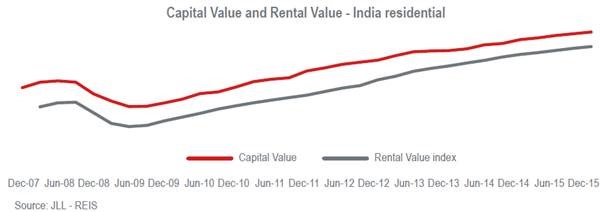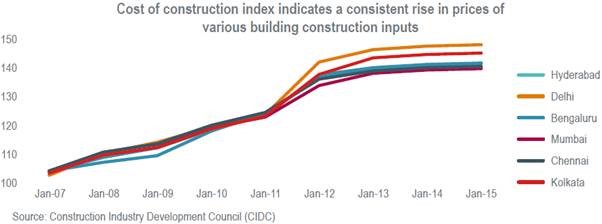The latest JLL research report ‘Indian real estate: Comprehending the varying speeds of growth’ tracks the journey of different asset classes from 2004 to 2015.
The residential market, which was touted to be a recession-free asset class until a few years ago, gave into market realities during the last couple of years.
The perception that housing can be aloof to a slowdown was well-entrenched within all stakeholders including the developers and investors, as it had not only recovered from the adverse impact of the global financial crisis, or GFC, quickly, but most cities saw prices recovering way beyond the previous peak which was observed in 2Q2008.
Also, given that housing is a basic need and that demand far outpaced supply kept developer’s and investor’s faith in this sector alive.
Over-supply and demand-supply mismatch mar residential realty

Over the last two years, unsold inventories of residential units have escalated to levels that were unsustainably high and it continues to remain there for a very long time. For instance, an unsold inventory of around 18-20 months is typically considered normal in today’s circumstances. However, the average unsold inventory since the GFC erupted in 2008, until 2015, stands at 25 months, with the latest reading outnumbering the average by a considerable number.
This suggests that developers’ shift of focus from commercial, which was witnessing slack, to residential, resulted in an oversupply situation. Against that, prices continued to rise on the back of rising input costs and untamed margin expectations of the developers and investors.

Continuous rise in prices, in many cases faster than rise in incomes and inflation, resulted in homes starting to become unaffordable across major city centres. Therefore, while the outcome was that demand slowed down, unaffordability, product-mismatch and the lack of market confidence amongst potential home buyers were the key game spoilers in the residential markets.

Undoubtedly, the residential sector is undergoing a period of relative stress. Endemic and regulatory concerns have been at the heart of issues currently impacting this asset class. Price stagnancy and falling sales are probably the indicators that the sector needs to improve its performance and address the trust deficit it currently faces from its consumers.